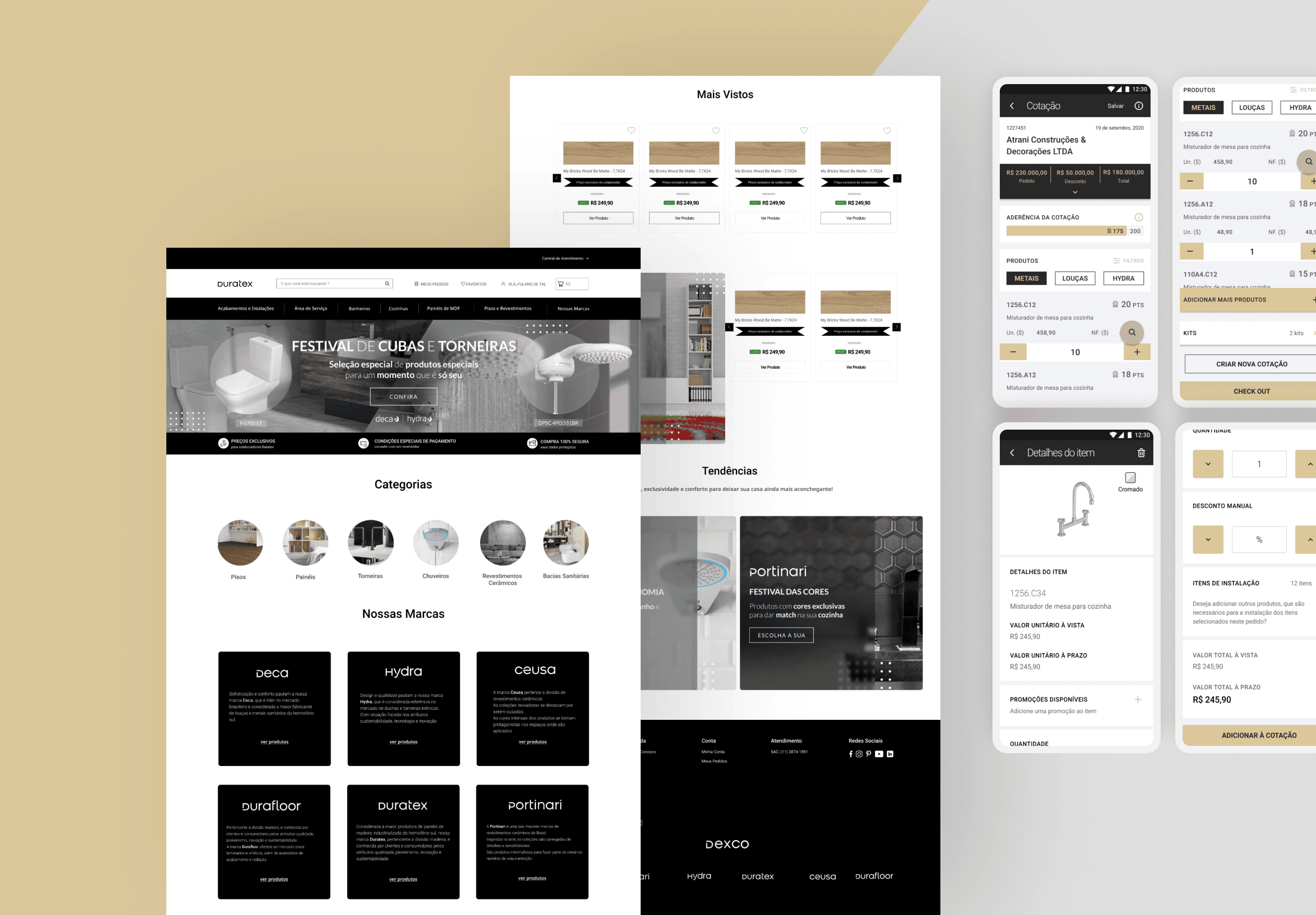Dexco
Introduction
Building an e-commerce platform from scratch is a formidable task, particularly for a company as large and established as Dexco and its subsidiaries. The stakes were incredibly high; the expectation was that this marketplace would generate an annual revenue of approximately USD 2 billion. Given Dexco's long history as a traditional company, adapting to remote work posed a significant challenge for many employees, which made coordinating efforts between Dexco’s internal product and technology teams and external contractors particularly complex.
Main Challenge: Building Dexco's E-commerce Platform
Dexco, formerly known as Duratex, is a publicly traded Brazilian company listed on the São Paulo Stock Exchange, with an annual revenue of USD 1.2 billion. As the largest producer of wood panels, bathroom fixtures, and metals in the Southern Hemisphere, Dexco had traditionally focused on B2B sales. However, recognizing the potential of existing online marketplaces, Dexco decided to initiate the ambitious project of building its own e-commerce platform. My role was central to ensuring this transition from traditional to digital commerce was both smooth and successful.
My Responsibilities
I played a key role in both the operational aspects of the project's Discovery and Delivery phases, ensuring that all objectives were met. I was also responsible for coordinating the efforts of outsourced designers, aligning their work with the project’s overall goals.
Discovery Phase
For this project, we employed Empathy Map exercises to better understand the needs and behaviors of potential customers—users who previously shopped across different stores to find Dexco products. Post-launch, these customers would be able to access tens of thousands of products through a single e-commerce platform.
As we were building the e-commerce platform from the ground up and lacked an MVP, we relied heavily on research provided by the Marketing and Customer Success teams to construct detailed personas. We also collaborated closely with Dexco's in-house architects to integrate the company’s architectural design teams into the process, aiming to offer a seamless product suggestion experience that catered to both professional architects and everyday consumers.
Delivery Phase
Managing a large team of designers allowed us to produce a high volume of deliverables in a relatively short timeframe. However, this also introduced the challenge of maintaining consistent alignment between two independent design teams working on different aspects of the same project.
Given the varied experience levels within the design teams, I took special care in task delegation to ensure that each designer was given assignments that were challenging yet within their current capabilities. This approach not only ensured the quality of the output but also fostered professional growth within the team.
Key Learnings
Working on a project of this scale is both intimidating and immensely rewarding. One of the most valuable lessons I learned was how to handle sensitive information from a publicly traded company while balancing the often competing demands of internal and external teams, as well as C-level stakeholders.
Moreover, this experience deepened my understanding of the complexities involved in transitioning a traditional B2B business model into a digital marketplace, and the critical role UX plays in making this shift successful. Seeing the project come to life and knowing it has the potential to revolutionize how Dexco interacts with its customers is a testament to the power of well-executed user experience design.
